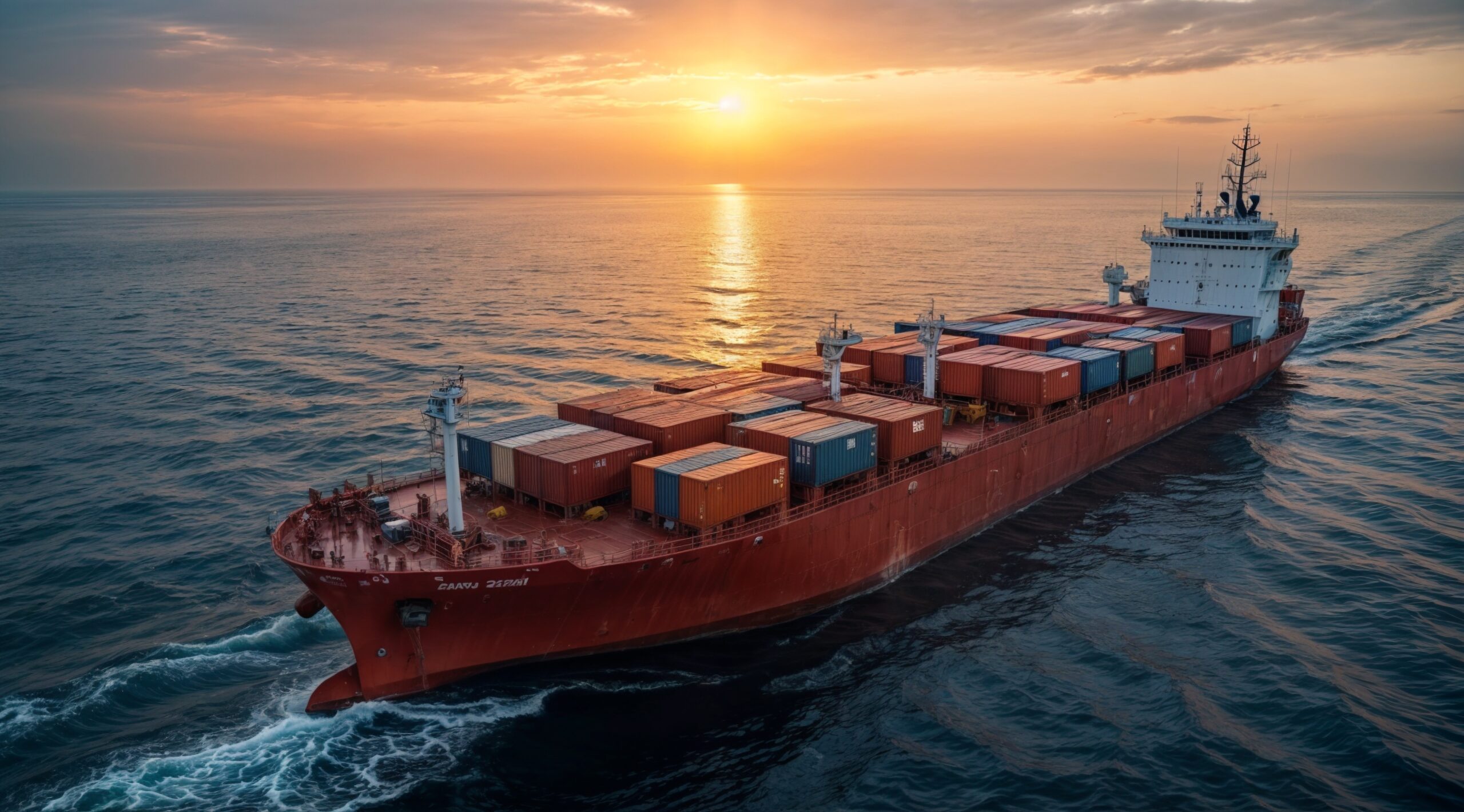
More than 226 million containers move through global ports each year. And while the focus tends to fall on the cargo inside, such as electronics, machinery or raw materials, there is another market moving quietly in the background: the containers themselves.
The trade in containers—buying, selling, leasing—now moves billions each year. It’s pushed by the pace of global shipping, the rise of e-commerce and the growing need for flexible freight. In Dubai, the business depends on what the city does well: smooth customs, strong port access and a central spot between Asia, Africa and Europe.
This article breaks down how to start a cargo container trading business in Dubai. It covers setup options, licensing, customs registration, and how to build a client base in a niche but growing sector.
Cargo container business in Dubai: Overview
The UAE moves more than 19 million TEUs (twenty-foot equivalent units) each year, with Jebel Ali handling most of that volume. This constant traffic has created strong demand for shipping containers, both for logistics and resale. Units are bought, leased and repurposed by freight firms, contractors, storage companies and site operators across the region.
The market includes new and second-hand containers. Some buyers need units for regular cargo shipments. Others convert them into portable offices, storage units or temporary structures. Traders typically deal in general-purpose 20-foot or 40-foot containers, though demand also exists for specialised types such as reefers or open tops.
Container prices vary by condition, size and location. In a re-export hub like Dubai, containers often arrive full and leave empty. That imbalance fuels local demand and opens up margins for traders who can source and resell at the right time. Most buyers prioritise availability, delivery and fair pricing over branding or extras.
It’s a volume game, but not one that requires a warehouse full of stock. With the right suppliers, transport contacts and trade licence, small and mid-sized firms can enter the market and build up from there.
How to start a cargo container trading business in Dubai: Step-by-step
- Decide where to set up
Free zones offer full ownership, simpler admin and low tax. JAFZA fits firms that deal in bulk or work near the port. Meydan and IFZA suit smaller operators or those selling to local firms. Mainland licences give direct access to the UAE market but need more local engagement. The choice depends on how you plan to sell and who you’ll sell to. - Apply for your trade licence
You’ll need either a general trading or logistics services licence. The activity must include import, export, resale and storage of goods. Free zones handle their own approvals. For mainland businesses, apply through the Department of Economy and Tourism. You’ll need a trade name, registered office address, and copies of personal documents. Some free zones offer flexi-desk options to keep startup costs low. - Register with Dubai Customs and Dubai Trade
To move containers in and out of the UAE, register with Dubai Customs and open an account with Dubai Trade. If you plan to use Jebel Ali, you’ll also need a DP World code. These registrations allow you to submit declarations, access bonded storage, and book container handling services through port systems. - Build your supply network
Most container traders source from leasing companies, shipping lines, or other traders with surplus stock. The key is knowing where containers are coming in and who needs them next. Supply often comes in batches, so timing matters. Build relationships with port agents, depot managers and logistics firms who deal in equipment regularly. - Secure transport and storage
Unless you’re flipping containers directly between buyer and seller, you’ll need space to hold stock. That could be a leased yard, a depot partnership, or a logistics provider that offers container storage. Make sure the site complies with Dubai Municipality zoning and safety rules. You’ll also need access to haulage, as moving empty containers is specialised work with limited operators. Pricing often depends on lift-on, lift-off, and distance.
Benefits of starting a cargo container trading business in Dubai
Steady demand from trade, shipping and logistics
Dubai handles over 19 million TEUs each year. That flow creates constant demand for containers, not only in shipping but in construction, warehousing and events. Traders who can supply fast, especially with used stock, have a strong market.
Access to high-volume port infrastructure
Jebel Ali handles the most traffic in the region. It connects to over 150 ports and keeps dwell times low. That means faster moves, lower costs and a system traders can rely on.
Low startup cost and flexible scale
You don’t need a warehouse, fleet or heavy investment to get started. With the right licence and a few reliable suppliers, you can begin with minimal overheads. Most traders start small and build up inventory and clients over time.
Room for niche plays
Not all containers are used for freight. There’s a market for modified units across construction, retail, education and modular buildings. Traders who understand these use cases can tap into higher-margin deals and repeat business with less competition.
Tax advantages and customs efficiency
Free zones offer 0% corporate tax, full repatriation of profits and no import duties on goods re-exported from the UAE. Customs clearance is fast, especially for registered traders. This keeps margins healthy and paperwork minimal.
How to get clients for a cargo container trading business in Dubai
Target freight forwarders and logistics firms
Freight companies are consistent buyers of containers, especially those that handle import-heavy routes. Many prefer not to hold their own stock. Build direct relationships with operations managers and procurement teams, particularly in Jebel Ali and Dubai Industrial City. A clear offer with ready stock, simple delivery terms and short lead times is usually more effective than polished marketing.
Use B2B marketplaces strategically
Sites like Container xChange, BOXXPORT and Alibaba allow sellers to list inventory and respond to demand in real time. These sites work best when your listings are clear. Add the size, condition, where the container is, and when it’s ready. Buyers often choose Dubai traders for the quick handover and easier local handling.
Leverage import-export and construction contacts
Not every container buyer works in logistics. Construction firms, storage yards, modular builders and event contractors are often steady clients. Many of these leads come through referrals or existing supply chains. If you already work in transport, materials or customs clearance, ask your contacts to connect you with buyers in related sectors.
About Worldwide Formations
Worldwide Formations has been helping businesses grow in the UAE since 2008. We have supported more than 10,000 clients from over 90 countries with company formation, visa services, accounting and corporate advisory. As a registered agent at 22 major UAE free zones, we offer tailored support for mainland, free zone and offshore business setups. Through our international partners, we also provide tax advice, financial audits and other business solutions. For expert help with your business setup in Dubai, contact us today.


